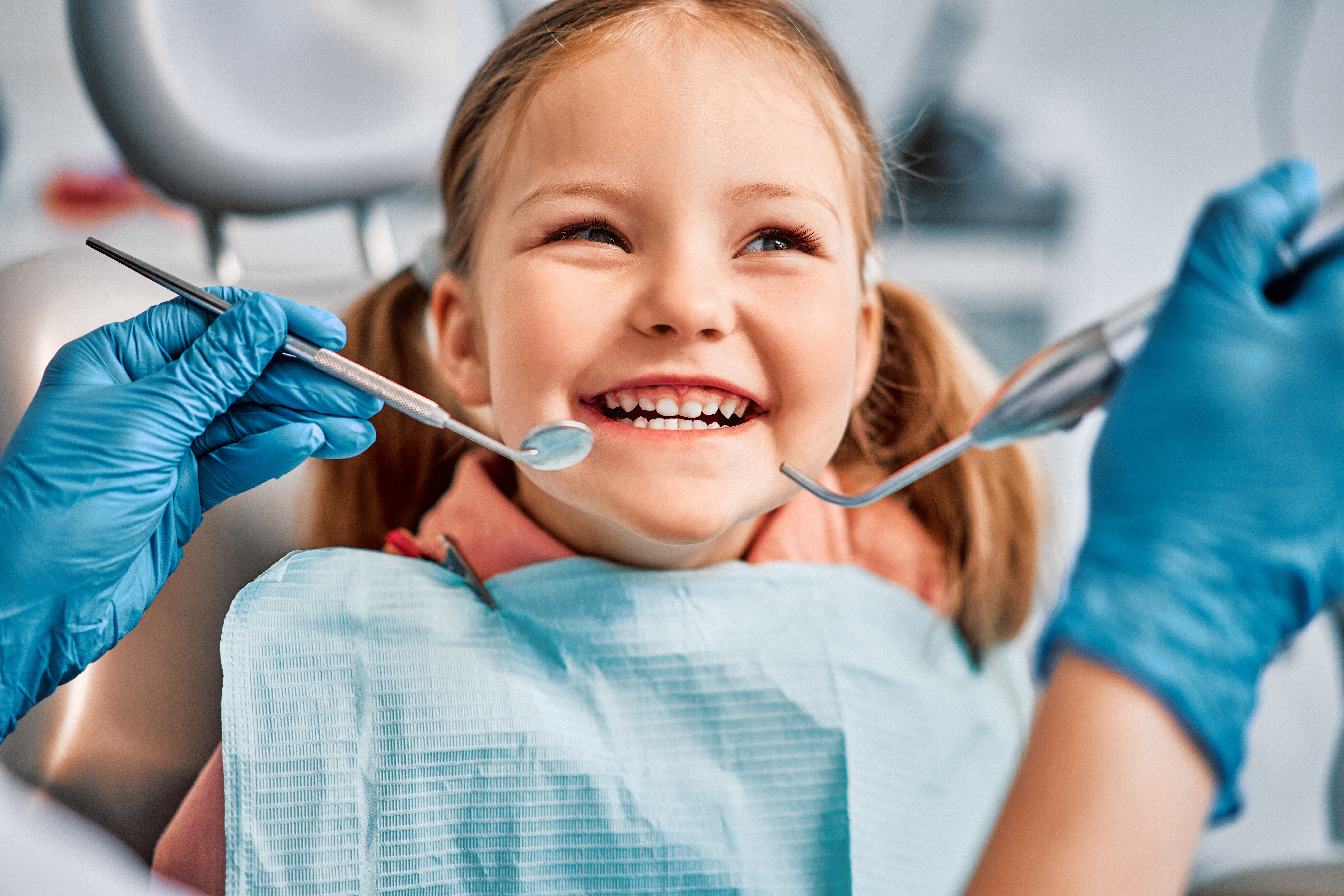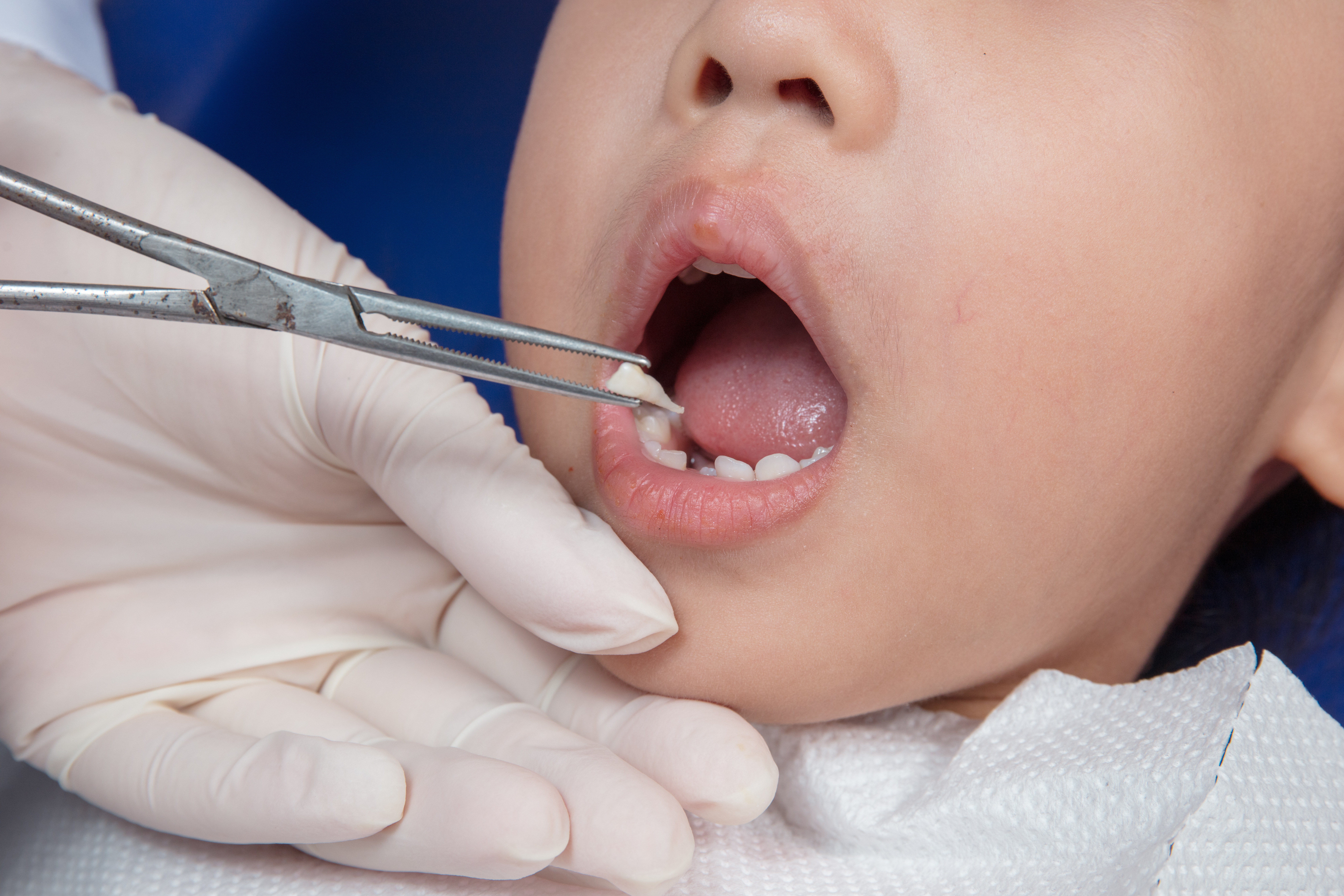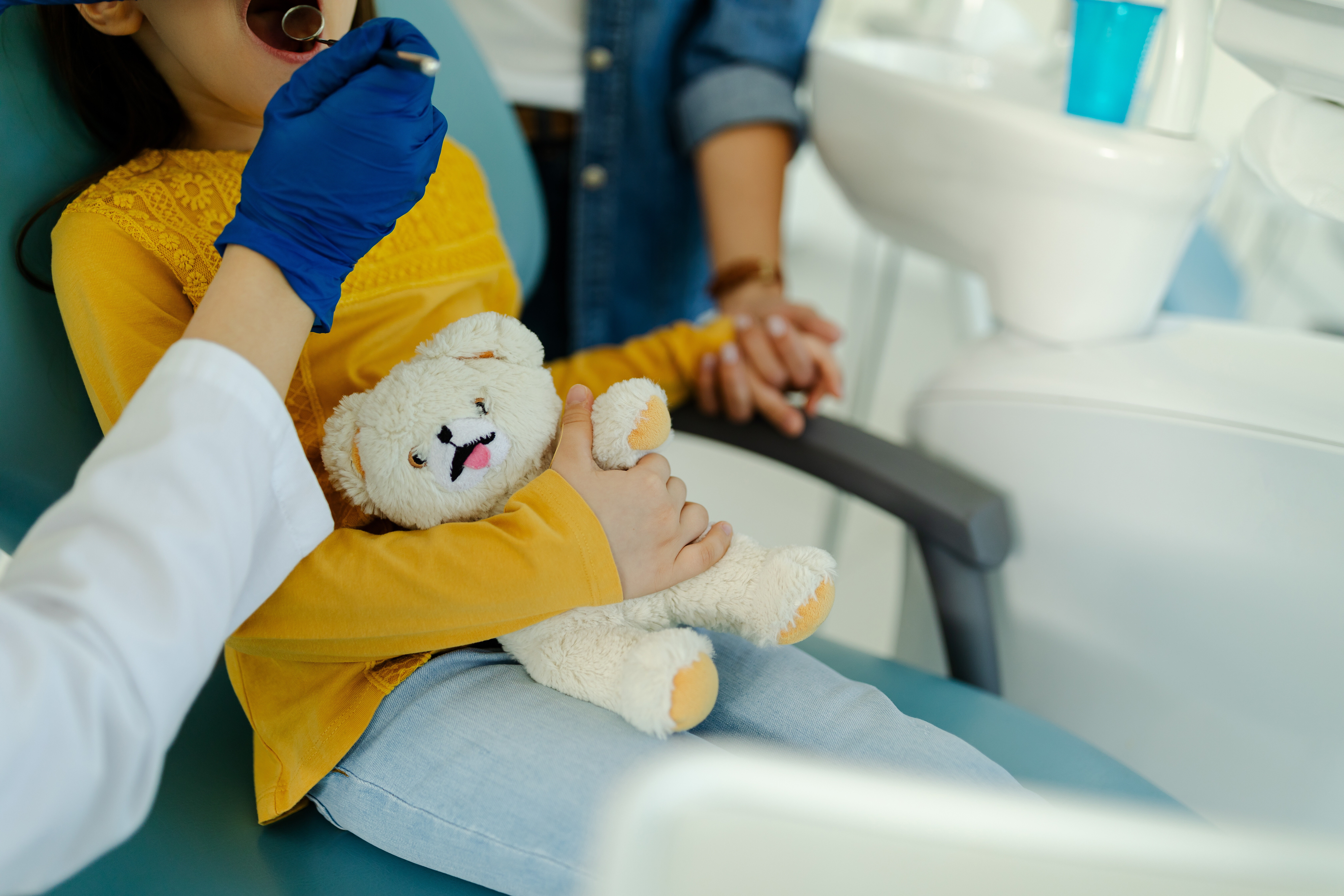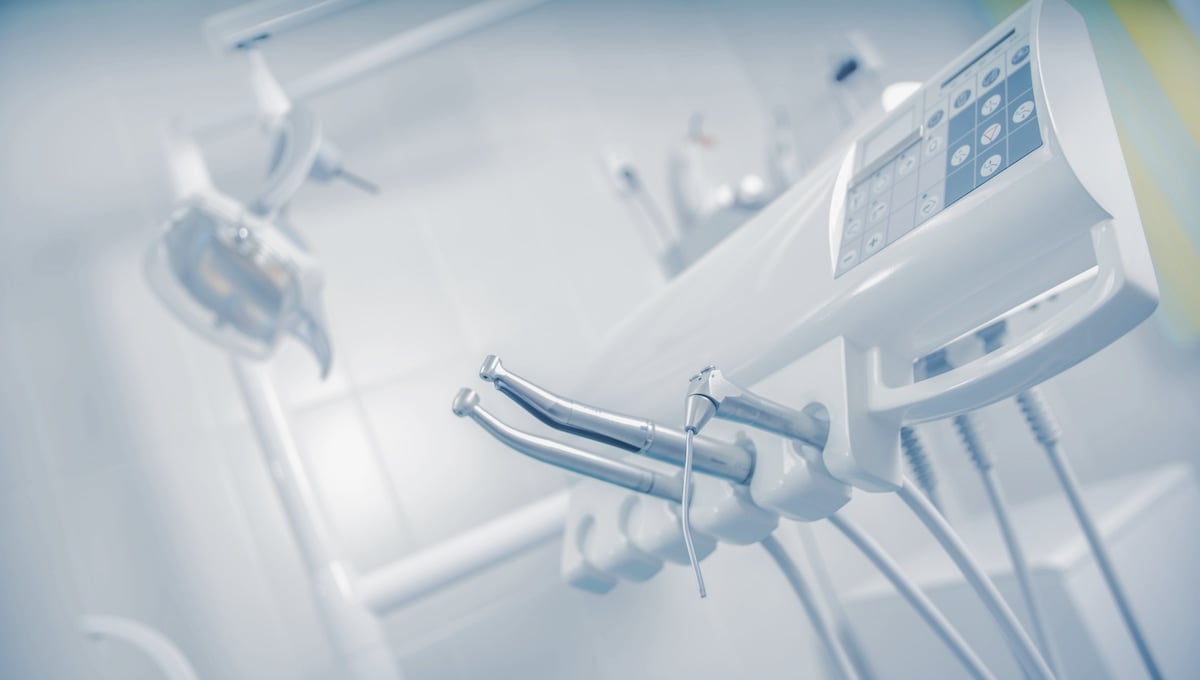.svg)
.svg)
.svg)
.svg)

Kids Dentist (Paediatric Dentist) in Singapore: Choosing the Right Dental Care for Your Child

What Is a Kids Dentist (Paediatric Dentist)?
A kids dentist, professionally known as a paediatric dentist, plays a crucial role in maintaining the oral health of children from infancy through their teenage years. In a Singaporean oral health programme, severe early childhood caries (SECC) was reduced significantly. The intervention group had 7.8% children with SECC, compared to 31.3% in the control group. Discover more about the benefits of paediatric dental care for your child’s health. It’s not just about treating dental issues, but also about instilling a lifetime of good oral hygiene habits.

Why is it Important to Educate Your Child on Dental Health?
At Nuffield Dental, our mission is to provide dental care that is gentle, compassionate and tailored specifically for young patients. The foundation of lifelong oral health is built on positive experiences with dental care, and we are dedicated to ensuring each visit contributes to this goal. Here’s why an early start is beneficial for your child:
- Prevents Tooth Decay: Addresses poor brushing due to undeveloped motor skills and unhealthy eating habits.
- Supports Development: Avoids dental issues that impact permanent teeth growth and overall health.
- Maintains Baby Teeth Health: Essential for eating, speech, and facial development.
- Promotes Good Habits: Early visits and hygiene education foster lifelong healthy dental practices.
Worried about your child’s oral health? Speak to our dentists in person by securing a consultation slot.
At What Age Do Kids Go to the Dentist?
- First Visit: For very young children, it's crucial to schedule the initial dental visit between six to twelve months of age.
- Infants (up to twenty four months old): Monitor the development of their teeth early on.
- Toddlers (1-3 years old): Regular check-ups help instil good oral hygiene practices.
- Pre-Schoolers (4-6 years old): Monitoring the eruption of permanent teeth, which push down on the roots of the primary teeth, causing them to dissolve, become shaky, and eventually fall out, a process known as “exfoliation”.
- School-Age Children (7-12 years old): Continued observation of exfoliation, which occurs repeatedly from 6 to 12 years old. By the age of 12 or 13, the transition to only permanent teeth should be complete.
As the saying goes, “prevention is better than cure”. Book an appointment for your little one with Nuffield Dental now!
At What Age Do Kids Go to the Dentist?

Paediatric Dentistry Procedure
Dental visits can be challenging for both parent and child. Children may panic when they find themselves in unfamiliar environments, and our team at Nuffield Dental is here to support you in any way we can. Here’s how we can help.
- Comprehensive Consultation: Initially, a warm and understanding dentist will conduct a thorough assessment of your child's dental health, discussing any concerns or questions you might have.
- Child-Friendly Environment: Nuffield Dental creates a welcoming and comforting atmosphere, making children feel at ease during their visit.
- Gentle Care: Our dentists specialise in paediatric dentistry, ensuring treatments are as gentle and non-invasive as possible.
- Educational Approach: We believe in educating children about dental hygiene in an engaging way, encouraging healthy habits from a young age.
- Parental Involvement: Parents are kept informed and involved at every step, ensuring transparency and trust.
- Follow-Up Support: Post-procedure, our team provides comprehensive aftercare advice and support, ensuring your child’s dental health continues to flourish.
Remember, we’re here as your number one ally! Feel free to give us a call at +65 68334353 to discuss possible accommodations for your little one.
Dental Treatments Offered at a Kids Dental Clinic
Kids dental treatments are categorised into preventive care, restorative treatments, and orthodontic care to ensure your child's optimal oral health.
Preventive Care Treatments:
- Fluoride treatments to strengthen enamel and reduce decay risk.
- Dental sealants to prevent cavities on molars.
- Regular dental check-ups for optimal oral hygiene.
- Professional cleanings to prevent gum disease.
- Scaling and polishing to remove plaque/tartar and smooth enamel.
- Custom mouthguards for teeth protection during sports.
Preventive Care Treatments:

Restorative Treatments:
- Dental fillings for cavity repair.
- Stainless steel crowns for severe decay or weakened teeth.
- Tooth extractions for irreparably damaged teeth.
- Pulpotomies to save diseased tooth pulp.
- Pulpectomies for complete pulp removal in extensive damage.
Restorative Treatments:

Orthodontic Care Treatments:
- Braces to correct misaligned teeth and bite issues.
- Myobrace for correcting poor oral habits and promoting natural jaw alignment.
- Clear aligners for discreet, mild to moderate teeth alignment.
Orthodontic Care Treatments:

Remember, every child's teeth are unique, and your dentist will suggest the most suitable treatments. To learn more, schedule a consultation with Nuffield’s dentists today!

Kid Dental Care Dos and Don’ts
The following are some ways you can prepare for your child’s dental visits.
Do’s:
- Start early: Introduce oral hygiene habits as soon as the first tooth appears.
- Lead by example: Demonstrate good dental practices by brushing and flossing together.
- Make it fun: Use fun toothbrushes, flavoured toothpaste, and a timer for enjoyable brushing.
- Reward good behaviour: Offer praise or small rewards for consistent dental hygiene.
- Attend regular dentist visits: Ensure biannual check-ups to reinforce oral health importance.
- Inform dental staff: Share any special needs or medical problems of your child during the first appointment.
- Enlist quality company: If you can’t make it for the appointment, have someone the child trusts (friend, helper, relative etc.) accompany them on their visit to alleviate their fear.
Dont’s:
- Bribe your child for dental visits or use them as punishment.
- Encourage a diet high in sugary snacks and drinks that can increase cavity risk.
- Ignore your child’s fears about the dentist, or berate them for being scared.
- Be impatient with your child if he/she is reluctant to visit the dentist.
Overview of Children's Oral Health
| Age Group | Key Points |
|---|---|
| Below 7 Years | Start oral hygiene early; use finger brush, then soft toothbrush with low-fluoride toothpaste; brush twice daily; parental assistance. |
| 7 Years and Above | Use non-fluoridated toothpaste until your child can spit; introduce flossing; supervise oral care twice daily. |
| General Advice | Address thumbsucking by age 4; avoid overnight bottle feeding; clean teeth after night feeds. |
Paediatric Dentistry Benefits
- Healthy Smile: Regular visits to a paediatric dentist ensure your child's teeth remain in top condition, warding off cavities and maintaining a bright smile.
- Speech Development: Healthy teeth are crucial for articulation and clarity in speech. Dental health directly affects your child’s ability to pronounce words correctly.
- Self-Esteem: Aesthetically pleasing teeth bolster confidence, allowing your child to interact without self-consciousness about their oral appearance.
- Preventive Care: Early dental assessments aid in preventing potential diseases, saving time and expense while preserving your child's oral health for the future.
- Overall Health: Establishing good dental habits early is crucial for a child's oral health, setting the stage for lifelong healthy teeth and contributing to overall well-being.
Open 365 days of the year
Our Simpang Bedok and Seletar clinics are open every night until 2:30am, including weekends and public holidays
How Much Does Paediatric Dentistry Cost in Singapore?
- In Singapore, the cost of a regular dental check-up for children can range from S$80 to S$150.
- Initial paediatric consultations may cost between S$50 to S$150.
- Children with complex medical conditions or special needs often require tailored dental care approaches, which might reflect in the treatment costs due to the additional expertise and accommodations needed.
How Much Does Paediatric Dentistry Cost in Singapore?

Are There Subsidies for Kids Dentists in Singapore?
In Singapore, subsidies for children's dental care are available to help parents manage the cost of maintaining their child's oral health.
- CHAS Subsidies: If you are enrolled in the Community Health Assistance Scheme (CHAS), your child may be eligible for subsidies at participating general practitioners and dental clinics. The level of subsidy depends on the tier you qualify for: CHAS Green, Orange, or Blue.
- Medisave: For certain treatments such as dental surgeries that require hospitalisation, your child’s Medisave funds can potentially be used.
- MediShield Life: Some treatments that involve hospital stays might be covered by MediShield Life, a basic health insurance plan.
- Visit polyclinics that provide subsidised dental services, which can help reduce out-of-pocket expenses.
- Your personal insurance provider may also cover the cost of certain paediatric dentistry treatments.
Are There Subsidies for Kids Dentists in Singapore?

Considerations For Choosing a Paediatric Dentist
- Experience and Reviews: Seek a dentist with extensive paediatric care experience, evidenced by positive feedback from parents.
- Child-Friendly Environment: Look for a clinic that offers a welcoming space with vibrant decor, play areas, and child-sized furniture.
- Practice and Care Approach: Choose a dentist who uses modern practices, communicates clearly with both children and parents, and adapts care to your child's growing needs. This should include readiness for emergencies, flexibility in scheduling, and accommodations for children with special needs.
- Financial and Insurance Considerations: Ensure the clinic accepts your insurance or provides reasonable payment plans.
- Qualifications and Licensing: Confirm the dentist has a Bachelor of Dental Surgery (BDS), has received specialised training in paediatric dentistry, and is registered under the Singapore Dental Council.
- Safety Measures: Choose a clinic committed to child safety, using environmentally friendly, low-radiation diagnostic equipment and implementing stringent safety protocols for the well-being of young patients.
Considerations For Choosing a Paediatric Dentist


Book an Appointment
Fill out the form for any request or questions you have and we will contact you within one working day..
Why Choose Nuffield As Your Child’s Paediatric Dentist?

Experience and Reviews
Child-Friendly Environment
Our dental group is designed to be gentle, playful, and stress-free, ensuring a positive experience at every appointment. Nuffield Dental Serangoon Gardens features a designated play area to keep children amused before appointments.
Practice and Care Approach
Our paediatric dentists are specially trained to provide comprehensive oral health care, including oral surgeries as needed. It’s important for your child to know how and why we’re carrying out a certain procedure: our team emphasises education on common paediatric dental issues and preventive measures from the first visit, focusing particularly on your child's understanding and comfort.
Financial and Insurance Considerations
With 12 clinic locations across the city, Nuffield Dental, a Baby Bonus Scheme Approved Institution, makes it convenient for families to access affordable dental care close to home.
Qualifications and Licensing
Our dentists hold a Bachelor of Dental Surgery (BDS) with specialised training in paediatric dentistry, equipping them to manage dental issues in infants, children, pre-teens, and adolescents, including teething and early childhood caries. They are registered with the Singapore Dental Council, meeting the highest standards of child dental care.
Safety Measures
We prioritise your child’s safety. We utilise green-certified, low-radiation X-ray equipment, employed judiciously, to ensure the well-being of your child.
Since our establishment in 2014, Nuffield Dental has been the trusted choice of many in Singapore. Give us a try - we’re confident that you and your child will like us :)
FAQs
1. What Are the Signs of Dental Issues Parents Should Look Out For?
Signs of dental issues in children include persistent toothache, visible holes in teeth, sensitivity to temperatures, gum problems, and consistent bad breath, indicating the need for a dental check-up.
2. When Should Kids Go to the Dentist?
Kids should have their first dentist visit by their first birthday or six months after the first tooth appears.
3. How Often Should Kids Go to the Dentist?
Children should visit the dentist every six months for early detection of issues, preventive care, and to establish good oral hygiene habits, although frequency may adjust based on individual dental needs.
4. Is There An Emergency Dentist For Kids?
Yes, Nuffield offers emergency dental services for kids, dedicated to serving the local community up to 2:30am daily, with response lines open 24 hours for immediate assistance.
5. How Can Parents Prepare Their Child for Dental Visits?
Parents can prepare their child for dental visits by discussing them positively, using dental-themed picture books and toys, and being a calm and reassuring presence during visits.
6. How Does Paediatric Dentistry Differ from Adult Dentistry?
Paediatric dentistry focuses on children's oral health with child-specific training, tools, and approaches for a positive dental experience, unlike adult dentistry which deals with adult oral health issues and complex procedures.
7. What Dietary Habits Contribute to Good Oral Health in Children?
Good oral health in children is promoted by a diet rich in calcium and phosphates, limiting sugary foods and drinks, practising good brushing habits, and choosing nutritious snacks and drinks.
8. Why Are My Child's Baby Teeth Important?
Baby teeth are important for chewing, speech development, maintaining space for permanent teeth, and overall nutrition and self-esteem, emphasising the need for good care and practices like the Tooth Fairy to make dental health fun.
Medical References
Cameron, A. C., et al. Handbook of Pediatric Dentistry. Elsevier eBooks, 2013, https://doi.org/10.1016/c2010-0-67187-2.
Herrera-Moncada, M., et al. "Autism and Paediatric Dentistry: A Scoping Review." PubMed, vol. 17, no. 3, 2019, pp. 203–210, https://doi.org/10.3290/j.ohpd.a42665.
Roberts, J. F., et al. "Behaviour Management Techniques in Paediatric Dentistry." European Archives of Paediatric Dentistry (Print), vol. 11, no. 4, 2010, pp. 166–174, https://doi.org/10.1007/bf03262738.
.png?width=2223&height=447&name=Background%20(4).png)



